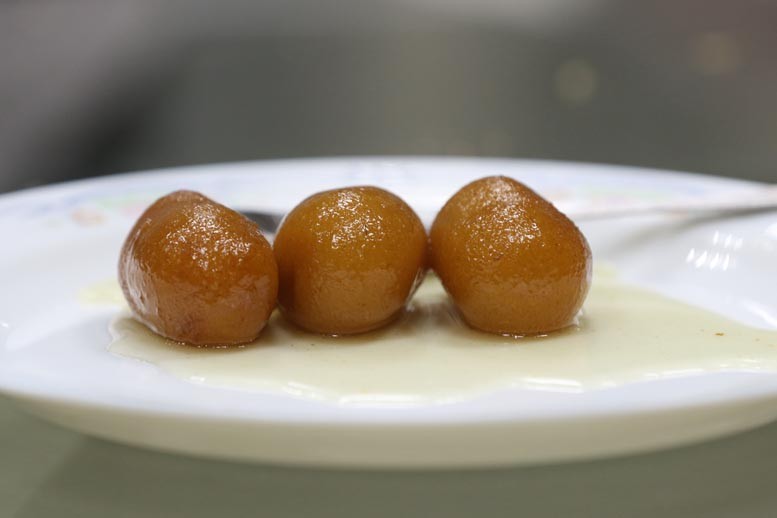
A perfect gulab jamun, not hard at the core, not mushy and soft to break down, is now Pakistan’s national sweet

In the midst of macabre headline news, Pakistan’s favourite comfort food made it big. The nayi government of naya Pakistan ran a poll on Twitter as the naya saal (New Year) ushered in: "Which should be the National Sweet of Pakistan?" There were three options: jalebi, gulab jamun, and barfi. More than 15,000 people voted, and gulab jamun won with 47 percent votes.
The poll I subsequently run on my facebook page had just two options: gulab jamun contended only by barfi. Gulab jamun won by a whopping 79 percent votes.
However, are polls on social media enough to decipher what is Pakistan’s favourite indulgence when it comes to a sweet tooth? There has been an uproar among social media users who complain that there was no national consultation in this important existential debate. However, at grassroots level, gulab jamun does seem to have tugged at the nation’s heartstrings. Mithai sellers and caterers confirm that gulab jamun is indeed the hottest selling item [pun intended] as they taste best when warm, bordering on hot.
The historical origins of gullus, as gulab jamuns are often fondly called, are often traced back to the times of Mughal emperors, particularly Shah Jahan. Folklore has it that Shah Jahan’s royal chef accidentally fused elements and by a stroke of fate, a sweet from heaven found its way on earth. Other food historians claim that its origins are Turkish or Persian. As diverse as the language in which its name is taken, which is Urdu, gulab jamun seems to be wrapped in layers of culture and history. Whatever its trajectory may have been, it is part of the very essence of happiness in the subcontinent.
Gulab jamuns are like all good thing in life. It has to be just right, and one mistake can be unforgiving. A perfect gulab jamun requires technique, skill, precision, accuracy, and above all patience. They cannot afford to be hard at the core, but also cannot be so mushy and soft that they break down -- just like a well-rounded person [pun again intended]. The reduced milk -- khoya -- which forms the basic ingredient of the dough of the tempting dessert, is derived after painstakingly cooking milk till it evaporates, leaving behind khoya. Once these dough balls are fried and are light brown, or blackish if it is a kala jamun, they are then soaked in sugar syrup. The syrup was originally rose-flavoured, which gives it the suffix "gulab".
Now, the rose essence is optional. But the sugar syrup or "sheera" as we Pakistanis lovingly call it, is a must. As an avid gulab jamun fan said when asked why she loves, "the sheera drips into my soul… it makes everything seem alright". Warm it a bit and it melts in the mouth. Put it in zarda (sweet saffron rice) and a bite with tiny gulab jamun makes you thank God for the good life. Have it after dinner or compliment it with chai. Gulab jamuns allure you. It is perhaps these enchanting qualities of the gulab jamun that make it the popular choice.
As a barfi lover, it is not easy for me to accept the supremacy of this King of Mithai. But one has to accept that gulab jamun has a more comforting and satisfying feel to it.
Gulab jamun being crowned as Pakistan’s national sweet has led to debates across borders. Nations across the subcontinent -- India, Nepal, Bangladesh, and of course Pakistan -- are claiming that it belongs to them. The debates on social media are often divisive. Everyone wants to establish that the home of the gulab jamun is their country. The gulab jamun smiles on, basking in its golden glory, while its lovers’ squabble like the "raqeeb" (adversary) in Urdu love poetry of yore would fight for a claim to the beloved.
Fact remains that Pakistan has taken the lead and gulab jamun is now, officially or semi-officially, Pakistan’s national sweet. But looking at the glass half full, here’s what is great about this phenomenon: If in nothing else, Pakistan and India may find themselves on the same page, for once, when it comes to the love of gulab jamun. When all else may have failed to build bridges, this gastronomic delight may do the trick. How sweet!